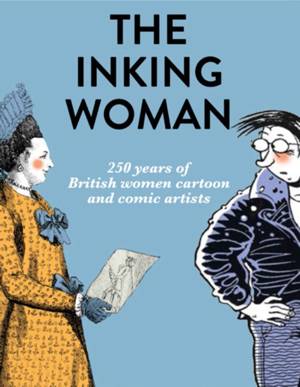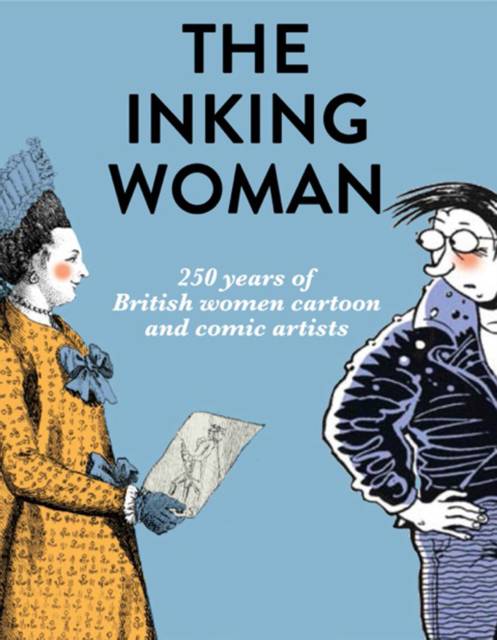
- Retrait gratuit dans votre magasin Club
- 7.000.000 titres dans notre catalogue
- Payer en toute sécurité
- Toujours un magasin près de chez vous
- Retrait gratuit dans votre magasin Club
- 7.000.0000 titres dans notre catalogue
- Payer en toute sécurité
- Toujours un magasin près de chez vous
The Inking Woman
250 Years of British Women Cartoon and Comic Artists
Nicola Streeten, Cath Tate
Livre relié | Anglais
27,95 €
+ 55 points
Description
This groundbreaking picture-led celebration of the work of over 100 named British artists, and a few more anonymous ones, reveals a wealth of women's wit and insight spanning 250 years. Based on an exhibition of the same name, held at the Cartoon Museum in 2017, this book edited by Nicola Streeten and Cath Tate demonstrates that women have always had a wicked sense of humour and a perceptive view of the world. For many years, the world of cartoons and comics was seen as a male preserve. The reality is that women have been drawing and publishing cartoons for longer than most people realise. In the early 1760s, Mary Darly illustrated, wrote and published the first book on caricature drawing published in England, A Book of Caricaturas. In the nineteenth century, Britain's first comic character, Ally Sloper, was developed by the actress and cartoonist Marie Duval (1847-1890). Cartoons were used by the suffragettes, and, during the Great War, artists such as Flora White and Agnes Richardson produced light-hearted propaganda comic postcards. From the 1920s, a few women cartoonists began to appear regularly in newspapers. The practice was for artists to sign with their surname, so most readers were unaware of the cartoonist's gender. In 1920, Mary Tourtel created Rupert Bear for the Daily Express, and nearly a hundred years later her character is still going strong. From the 1960s, feminism inspired cartoonists to question the roles assigned to them and address subjects such as patriarchy, equal rights, sexuality and child rearing, previously unseen in cartoons. Over the last thirty years, women have come increasingly to the fore in comics, zines and particularly graphic novels. This wide-ranging curation of women's comics work includes prints, caricatures, joke, editorial and strip cartoons, postcards, comics, zines, graphic novels and digital comics, covering all genres and topics. It addresses inclusion of art by women of underrepresented backgrounds. Both the exhibition and book have been made possible by the generosity of Cath Tate Cards.
Spécifications
Parties prenantes
- Auteur(s) :
- Editeur:
Contenu
- Nombre de pages :
- 144
- Langue:
- Anglais
Caractéristiques
- EAN:
- 9780995590083
- Date de parution :
- 29-03-18
- Format:
- Livre relié
- Format numérique:
- Genaaid
- Dimensions :
- 211 mm x 274 mm
- Poids :
- 861 g

Les avis
Nous publions uniquement les avis qui respectent les conditions requises. Consultez nos conditions pour les avis.






